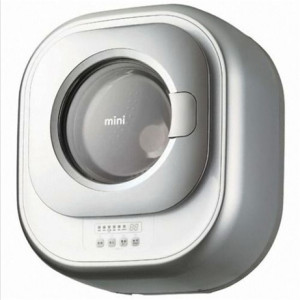
DAEWOO Brand History
Conditioners (split-systems) of Daewoo brand have always been distinguished by the quality of work and reliability. They allow you to easily create comfortable conditions in the room. Split systems can be placed on the floor, on the ceiling and attached to the walls. Most air conditioners produced by Daewoo are of a budget category, as a result of which many customers are available.
Daewoo, that when translated from Korean means "Great Universe", was created in the distant 1972. At that time it was called Shinjin. For it, and also for three Korean companies, the right to manufacture and produce cars was officially fixed. Later, in cooperation with General Motors, she created Daewoo Motor Company, whose headquarters is located in Seoul.
Before 1993 Daewoo actively cooperated with General Motors.
1995 was marked by the appearance in the German market of a model of small cars (Nexia) and medium (Espero) produced by Daewoo.
In early 1996, the company had three major technical centers in the UK (Worthing), Germany (Munich) and Korea (Pugliana). At that time, the chief technical manager of Daewoo was Ulrich Bez. He also currently holds this post.
At the end of 1997, Daewoo introduced three of its new car models - Lanos, Nubira and Leganza - at international auto shows.
The Asian financial crisis of 1998 made its own adjustments to the company's development. Despite the fact that the Korean government severely restricted access to credit, Daewoo continued to increase production. Thus, despite huge financial losses (about 460 million dollars), the company added another 14 new firms to 275 branches, which led to an increase in debt by more than 40%.
In 1999 Daewoo, which was the second largest concern in South Korea and cooperating with more than 100 countries, was declared bankrupt with debts of 80 billion dollars. The president of the company fled to France, and after his return to his homeland in 2005, he was arrested and charged with fraud, illegal borrowing of $ 10.3 billion worth of funds and smuggling from the country for $ 3.2 billion.
Shortly after the collapse of the parent concern, the Korean government reorganized Daewoo, in which individual branches of the company either ceased to exist or became independent, for example. Daewoo Electronics, which continues its activities in the market.

After the reorganization, the Daewoo group, with the exception of Daewoo Electronics, was divided into three joint-stock companies:
1) Daewoo International Corporation - dealing with trade and investment;
2) Daewoo Engineering & Construction - responsible for the production of steel and equipment for oil and gas production;
3) Daewoo Shipbuilding & Marine Engineering - producing ship of marine and river destination.
Part of the Daewoo productions were absorbed by other firms. The division dealing with passenger cars was bought by General Motors and renamed GM-DAT (short for General Motors - Daewoo Auto and Technology). Daewoo Commercial Vehicles acquired Tata Motors from India, which produces medium and heavy trucks.
In 2004, GM withdrew the Daewoo brand from the Australian and New Zealand markets, which caused irreparable damage to the brand. It was also announced that in these countries, Daewoo cars will be sold under the name Holden.
Since January 1, 2005 in Europe, all Daewoo cars have been renamed to Chevrolet, with which they were sold in South America, Thailand and the Middle East. The brand Daewoo was held only in South Korea, Uzbekistan and Vietnam.
In early 2011, General Motors, in connection with the decline in the reputation of the concern Daewoo, which was due to financial scandals and machinations in South Korea, decided to abandon the use of the Daewoo brand.
Despite the failure in the automotive industry, Daewoo is actively advancing in the oil and gas production market. During the investigations in Myanmar, she explored one of the largest gas fields in this country, which she plans to develop in the coming years.
The Korean brand Daewoo has ceased to exist since March 1, 2011. All rights to use it belong to General Motors.
